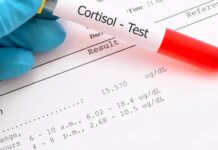AI Contribution
At HealthSpectra, we may use AI to refine grammar and structure, but every piece is shaped, checked, and approved by real people, our expert writers and editors, to ensure clarity, credibility, and care. Learn more..Affiliate Disclaimer
Some links in this article are affiliate links. We may earn a small commission if you make a purchase through these links, at no extra cost to you. We only recommend products we find useful to our readersMaintaining cardiovascular health is essential for overall well-being, and regular heart check-ups play a crucial role in preventing potential issues. The heart, as a vital organ, continuously pumps blood throughout the body, making close monitoring vital for optimal performance.
This article underscores the importance of routine cardiac exams for the early detection and prevention of heart-related problems. By prioritizing these check-ups, individuals can gain insights into their heart health and implement preventive measures to avoid complications. In today’s complex lifestyles, understanding the value of proactive cardiac care is increasingly essential for maintaining long-term cardiovascular wellness.
Key Heart Health Risks Identified Through Regular Check-ups

Cardiovascular diseases are largely preventable, and regular check-ups help detect key risk factors early. During these screenings, your doctor can identify several important risk factors that can increase the likelihood of heart disease, including:
- High Blood Pressure: Often called a silent killer, high blood pressure can damage the heart and blood vessels over time. Regular monitoring is essential for early intervention.
- Cholesterol Levels: Both “good” HDL cholesterol and “bad” LDL cholesterol impact heart health. Regular tests help manage and prevent plaque buildup in arteries, reducing the risk of heart attacks and strokes.
- Blood Glucose Levels: Monitoring for conditions like diabetes, which increases the risk of heart disease, is crucial for early management and prevention.
By regularly monitoring these factors, check-ups provide a proactive approach to heart health and help prevent serious cardiovascular issues.
The Role of Regular Heart Check-ups

Routine heart check-ups are an effective way to detect risk factors early and prevent heart disease. Even if you don’t have any symptoms, regular screenings can uncover underlying issues, allowing for early intervention. During these check-ups, your doctor will conduct several tests to monitor key risk factors that could contribute to cardiovascular problems.
These tests typically include:
- Blood Pressure Test: High blood pressure (hypertension) can damage the heart and blood vessels, increasing the risk of heart disease and stroke. This test helps detect any abnormalities early, enabling you to take action to manage your blood pressure.
- Cholesterol Screening (Lipid Panel): This test measures levels of total cholesterol, LDL (“bad” cholesterol), HDL (“good” cholesterol), and triglycerides. Imbalanced cholesterol levels can lead to plaque buildup in arteries, which increases the risk of heart attacks and stroke.
- Blood Glucose Test: This measures the amount of sugar in your blood, helping detect signs of diabetes. High blood sugar levels increase the risk of heart disease and its complications.
- Body Mass Index (BMI) and Waist Circumference: These measurements help assess obesity and abdominal fat, both of which are linked to higher risks of heart disease, high blood pressure, and diabetes.
- Electrocardiogram (ECG or EKG): This test records the electrical activity of your heart, helping detect irregular heart rhythms (arrhythmias) or signs of previous heart attacks.
- Echocardiogram (if recommended): An ultrasound of the heart that helps identify structural problems, such as heart valve issues, heart failure, or abnormal blood flow.
- C-Reactive Protein (CRP) Test (if recommended): This blood test checks for inflammation in the body, which is a key indicator of cardiovascular disease risk. High CRP levels may signal an increased risk of heart attacks or stroke.
- Ankle-Brachial Index (ABI) Test (if recommended): By comparing the blood pressure in the arm and ankle, this test can detect peripheral artery disease (PAD), which increases the likelihood of heart disease.
These tests provide vital information about your cardiovascular health, allowing your doctor to develop a personalized treatment plan to address any issues before they escalate. Routine screenings are essential for maintaining heart health, and they enable early detection and intervention, which can lead to better outcomes and a healthier life.
Benefits of Early Detection

Early detection of heart disease through regular check-ups can be life-saving. According to the World Health Organization, cardiovascular disease is the cause of 17.9 deaths each year. Heart disease is the leading cause of death for both men and women. Sadly, a lot of people are unaware that they have a cardiac condition until they suffer a heart attack or stroke.
When conditions like hypertension, high cholesterol, and diabetes are detected early, they can be managed before they lead to more serious issues such as heart attack, stroke, or heart failure.
By identifying risks early, you can take action to manage these factors through lifestyle changes or medication, significantly lowering the chances of developing severe heart disease. Regular check-ups make early intervention possible, allowing you to live a longer, healthier life.
Prevention Strategies and Lifestyle Modifications

Adopting proactive prevention strategies and lifestyle changes is essential to maintaining a healthy heart. By addressing modifiable risk factors, individuals can significantly lower their risk of heart disease and improve overall well-being.
Here are some key strategies:
Heart-Healthy Diet:
- Focus on fruits, vegetables, whole grains, and lean proteins.
- Limit salt, trans and saturated fats, and added sugars.
- Include omega-3 fatty acids from sources like walnuts, flaxseeds, and seafood.
Regular Physical Activity:
- Engage in aerobic exercises such as jogging, cycling, or brisk walking.
- Improve cardiovascular fitness, lower blood pressure, and maintain a healthy weight.
Stress Management:
- Practice mindfulness, deep breathing, or meditation.
- Reduce stress to enhance emotional and heart health.
Medication:
- Follow prescribed regimens for managing conditions like high blood pressure or cholesterol.
- Consult healthcare professionals to ensure optimal heart health.
By incorporating these strategies into daily routines, individuals can adopt a heart-conscious lifestyle, reducing their risk of heart disease and promoting longevity and well-being.
Take Action: Schedule Your Regular Check-up Today
Scheduling routine cardiac exams is essential to maintaining cardiovascular health. The importance of these tests cannot be overestimated, as they provide a critical window into early identification and treatment of heart-related problems.
Routine heart check-ups and tests are the best chance of getting the appropriate treatment immediately and having any underlying medical concerns diagnosed. By scheduling these examinations, we are embracing a preventive approach, which improves personal well-being and supports the larger initiative to lessen the burden of cardiovascular diseases. Prioritizing our hearts will ensure they beat powerfully and resolutely for years.
Conclusion
Your heart powers every moment of your life, and regular heart check-ups are an investment in your long-term health. By adopting routine screenings, you give yourself the gift of early detection, allowing you to address any potential issues before they become severe.
Consider these check-ups as a compass guiding you toward better decisions and a healthier future. Awareness is the first step toward prevention, followed by action. Schedule your heart check-up today and take charge of your cardiovascular health. Your future self will thank you.
References
- https://www.cdc.gov/heartdisease/risk_factors.htm
- https://www.mayoclinic.org/diseases-conditions/heart-disease/symptoms-causes/syc-20353118
- https://www.cdc.gov/chronicdisease/resources/publications/factsheets/heart-disease-stroke.htm
- https://www.radiologyinfo.org/en/info/screening-cardiac
- https://www.healthline.com/health/heart-health/scheduling-heart-health-checkup
- https://www.heart.org/en/health-topics/consumer-healthcare/what-is-cardiovascular-disease/heart-health-screenings
- https://amscardiology.com/the-importance-of-routine-heart-check-ups
- https://www.webmd.com/heart-disease/heart-failure/early-diagnosis-heart-failure
- https://www.mayoclinic.org/diseases-conditions/heart-disease/in-depth/heart-disease-prevention/art-20046502
- https://www.healthline.com/health/heart-disease/work-with-your-doctor-to-prevent-heart-disease
- https://www.utphysicians.com/five-reasons-why-you-should-get-an-annual-checkup
- https://www.modernheartandvascular.com/routine-heart-check-ups-why-is-so-essential
- https://www.hopkinsmedicine.org/health/wellness-and-prevention/know-your-heart-risks
- https://www.nhlbi.nih.gov/health/heart-healthy-living/risks
- https://amscardiology.com/the-importance-of-routine-heart-check-ups
- https://www.modernheartandvascular.com/routine-heart-check-ups-why-is-so-essential
In this Article





















